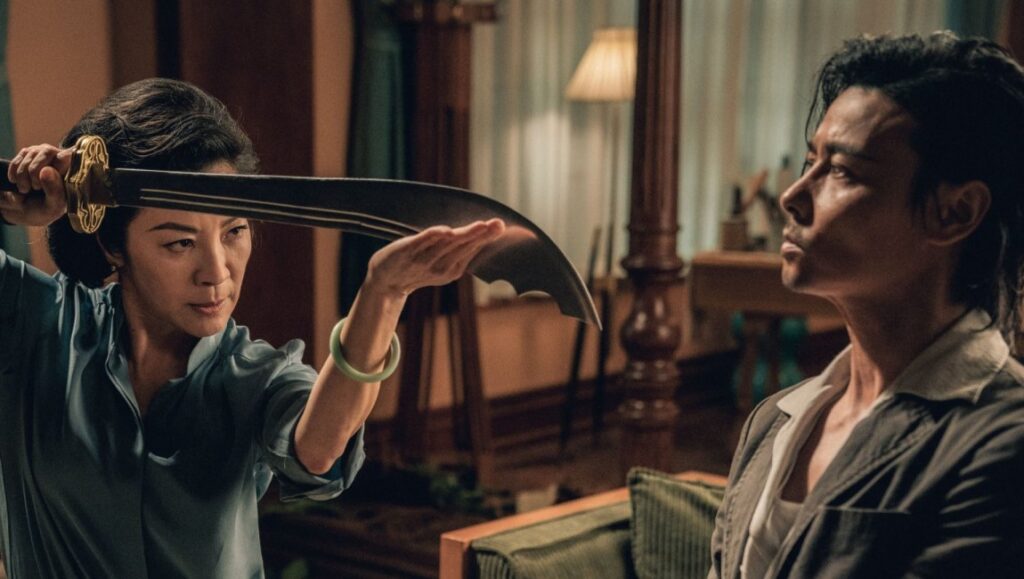Yuen Woo-ping’s Ip Man “side story” is a perfectly appropriate addition to this franchise, for both better and for worse. Master Z: Ip Man Legacy serves as a direct sequel to Wilson Yip’s Ip Man 3, taking place in the aftermath of Cheng Tin-Chi’s (Max Zhang) behind-closed-doors defeat by Ip Man (Donnie Yen). Cheng has since abandoned the Wing-Chun kung-fu school he once taught and now lives a quiet life with his son, managing a small convenience store. Inevitably, he’s dragged back into action when he crosses paths with Tso Sai Kit (Kevin Cheng), a local thug who aspires to be a bigshot crime lord but who works under the command of his more even-tempered sister, Tso Ngan Kwan (Michelle Yeoh). Cheng is innocently riding home when Julia (Yan Liu) and her opium-addicted sister-in-law Nana (Chrissie Chau) bump into his bike in the midst of their escape from Tso Sai Kit’s gang. Cheng’s chivalrous instincts kick in, and some other kicking goes on as well — and later, Cheng finds himself the victim of a brutal retaliation, when his home and his business are burned to the ground.
For Yuen’s limited ambitions — which amount to architecting elegant if harried set-pieces through which Max Zhang must fight his way — this simple revenge plot with some women in trouble at the center would be more than adequate. But like the Ip Man films, Master Z chooses to develop in myriad directions at once. The dense ensemble includes Yu Ying as Julia’s speakeasy manager brother — who gives Cheng and his son a home, and employ, and who later reveals that he’s also a former kung-fu fighter who wants to test his mettle against the famed Wing-Chun style — as well as a delicatessen owner played by WWE star Dave Bautisa and an inexplicable cameo role for Tony Jaa, whose shadowy assassin becomes a kind of deus ex machine for this plot, and is seemingly there to set up expected sequels. Master Z frequently satisfies in isolated sequences, including a multi-planed brawl during which Zhang and Yeoh in particular become conduits for the kind of practical-effects wire-fu that Yuen’s best films have often excelled at delivering. But the complexities of this plot simply aren’t justified by the total flatness of these characterizations — and the broad political and historical messaging that some entries in the Ip Man franchise have drawn interest from just feel too overly familiar at this point.
Published as part of Before We Vanish | Issue 4.


Comments are closed.